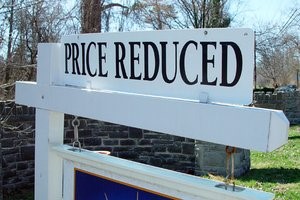The article below, published in the Buffalo News, offers valuable insights for everyone involved in a real estate transaction.
For Sellers
As highlighted in the article, it’s crucial to honestly disclose any defects in your home rather than attempting to conceal them. Transparency not only builds trust with potential buyers but also protects you from legal repercussions down the line.
For Buyers
While the home inspection may not have uncovered serious issues in this particular case, it remains essential to have one conducted. A thorough inspection can provide peace of mind and help identify potential problems that could affect your investment.
Understanding the importance of both seller disclosures and home inspections can lead to smoother transactions and more satisfied parties on both sides of the deal.
– Matt
Court awards $282,000 to purchasers of sinking home Jury finds sellers lied about condition
By Janice L. Habuda
NEWS STAFF REPORTER
Published: March 14, 2010, 12:30 am
A couple who bought a “sinking home” in Amherst has been awarded the purchase price by a State Supreme Court jury, which found the sellers lied about the home’s condition.
Karen and Anthony Regan sued the former owners of 107 Blue Heron Court, as well as the real estate firm that listed the property and the real estate agent who represented them. Claims against additional parties were dismissed by State Supreme Court Justice Patrick H. NeMoyer before trial.
The $282,000 award equals what the couple paid in 2007 for the house, which they also keep.
“This is the first case which has gone to trial in which a verdict has been rendered against both the seller and the real estate [agent],” said attorney James I. Myers, who represented the Regans.
“I think it sends a very strong warning and message to sellers. If they know of a material defect in their home, they have to disclose it,” Myers said. “It sends an equally strong message to real estate brokers and agents that they have a duty to disclose. They just can’t rely upon a buyer doing a home inspection.”
About a decade ago, hundreds of homeowners in parts of Amherst noticed foundation failures and sinking homes that later were attributed to soil problems.
Jurors found on March 5 that former owners Elaine and Robert Altman lied about the condition of the home, which is in an area of north Amherst where homes are sinking or cracking because of poor underground conditions. The Altmans were found 75 percent liable.
“We think the verdict is wrong,” said attorney Richard A. Clack, who represented the Altmans and said he is considering post-trial motions. “My clients certainly did not commit any knowing fraud against the buyers.
“We worked tirelessly throughout this case to try to come up with a solution for the new owners,” Clack said. “We went to trial on this unwillingly.”
John Fox, an agent for Hunt Real Estate whose actions were found to have violated Real Property Law, was found 20 percent liable.
Attorney Brian Sutter, who represented the agent and firm, said that an appeal is planned but declined to comment further.
Jurors found the Regans were 5 percent liable of negligence in their purchase. Their attorney said he doesn’t believe allocation of responsibility is appropriate in this case.
Another real estate agent, Scott Thomas, who originally worked on the Regans’ behalf as an agent for Keller Williams Realty, was found not liable.
Several years before putting the house up for sale, the Altmans noticed some settlement toward the back of the house and sought to remedy it, Clack said.
“They spent $28,000 in early 2002 to fix that,” Clack said. “They thought their house was in good condition when they put their house on the market.”
“They had given the Realtor the documentation of what had been done on the house,” Clack said.
Fox denied receiving or seeing some of the documentation in question, according to court papers.
The Regans looked at the home in spring of 2007 in the company of their real estate agent and the Altmans. In the basement, the walls were obscured but some cracks were visible in an uncarpeted area of the floor.
Anthony Regan claimed he asked about the cracks and was reassured by Robert Altman that there were no water problems. Regan testified that he then asked:
“This isn’t one of those sinking homes, is it?”
“[N]o, that’s in the Pines,” Altman reportedly replied.
“[Y]eah, they’ve had a lot of problems [or trouble] over there,” Thomas added.
After the Regans made an offer on the house, they received the “Property Condition Disclosure Statement,” in which the sellers stated there were no water infiltration issues with regard to the basement or structural defects.
Because of that statement and the existence of home warranty, the Regans decided not to have a home inspection.
After closing, the Regans heard from their new neighbors about sinking foundation problems in the neighborhood. They also learned of records on file with the Town of Amherst—including documents the Altmans had submitted with a request to have their assessment significantly reduced.
What about caveat emptor — let the buyer beware?
Myers, the Regan’s attorney, said that still applies, but sellers must prepare a disclosure statement and certify to its truthfulness.
“The courts have held that if they fill that out falsely, they can be held liable.”
Darlene Torbenson has been a spokeswoman for owners of sinking homes. “Hopefully, a ruling like this would make [real estate agents] a little bit more cautious about the homes they’re selling,” she said.
jhabuda@buffnews.com

